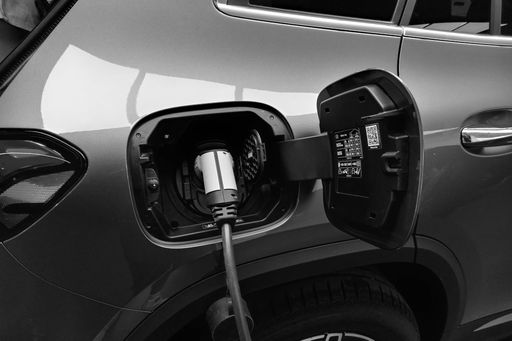The New Car Batteries That Could Power the Electric Vehicle Revolution
Researchers are experimenting with different designs that could lower costs, extend vehicle ranges and offer other improvements.

Alternative Designs for Electric Car Batteries
There's a revolution happening in the world of batteries for electric cars. Manufacturers are exploring alternative designs that could potentially solve some of the limitations of conventional lithium-ion batteries. For example, Japanese car maker Toyota is aiming to release a car in 2027–28 that could travel 1,000 kilometers and recharge in just 10 minutes, using a battery type that replaces liquid components with solids. Chinese manufacturers are developing budget cars featuring sodium-based batteries, which are cheaper and more abundant than lithium. Additionally, a US laboratory has made progress in developing an air-powered cell that could provide enough energy to power airplanes.
These alternative designs aim to diversify the market and cater to different needs. While lithium-ion batteries have dominated the EV market, researchers believe that a range of options will soon fill different niches, providing cheaper solutions and higher power capabilities.
The pursuit of better car batteries is driven by the growing market for electric vehicles. Many countries have set targets for all new cars to be electric by 2035 or earlier. The demand for energy from EV batteries is expected to increase significantly, reaching 14 terawatt hours (TWh) by 2050, which is 90 times more than in 2020.
Challenges in Car Battery Design
Car batteries have demanding requirements. They need to store a large amount of energy while being lightweight and compact. They also need to provide sufficient power for acceleration, have a long lifespan, recharge quickly, and be safe and affordable. Optimizing all these factors simultaneously is a difficult task for researchers.
To address these challenges, various research programs are underway. The US Department of Energy's Battery500 program aims to increase cell energy density by 65% compared to current batteries. The PROPEL-1K program has set a longer-term goal of achieving even higher energy densities. Additionally, the DoE's Vehicle Technologies Office aims to reduce the cost of batteries to make electric vehicles price-competitive with gasoline-powered cars.
The field of battery research is highly competitive, with researchers exploring different options to improve battery performance. They are looking at alternative materials for cathodes and anodes, as well as investigating the use of solid-state electrolytes. Solid-state batteries have the advantage of higher energy densities and improved safety compared to liquid-based batteries. However, there are challenges in manufacturing smooth interfaces between layers and ensuring fast ion transport through the solid electrolyte.
The Future of Electric Vehicle Batteries
The future of electric vehicle batteries is likely to be a mix of different technologies. While lithium-ion batteries are expected to remain dominant in the near future, alternative designs such as sodium-based batteries, solid-state batteries, and lithium-air batteries hold promise for specific applications. Sodium batteries could offer a cheaper and more abundant alternative to lithium, while solid-state batteries provide higher energy densities and improved safety. Lithium-air batteries, although still speculative, hold the potential for even higher energy densities and could be particularly suitable for aviation applications.
However, there are still many challenges to overcome before these alternative battery designs can become commercially viable. Researchers are focusing on solving issues related to electrode materials, electrolyte interfaces, and manufacturing processes. They are also exploring new battery chemistries that use non-scarce and sustainable materials.
Despite the challenges, significant progress has been made in battery research, and some market intrusion of alternative battery technologies is expected in the coming years. As the demand for electric vehicles continues to grow, the development of better car batteries is crucial for achieving a sustainable and energy-efficient transportation system.


